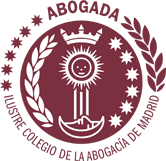Inheritance lawyers in Madrid
We help you to avoid and face problems between heirs with a strategy that protects your interests.
Our team of inheritance lawyers has been led since 1994 by Mrs Rus María Muñoz Gómez, a member of the Madrid Bar Association with more than 30 years of experience in wills, inheritance, conflicts between heirs and taxes affecting inheritance.
We have acted as legal expert accountant in many legal proceedings related to inheritances, which means that our advice as lawyers in inheritance matters is highly valued.

Do you know how much inheritance tax you have to pay?
You have seen us in:
We know that an inheritance can be complex:
- You fear family conflicts due to the inheritance.
- You do not know whether it is better to accept or renounce.
- You want to be clear about the taxes to be paid.
- You do not know what to do if there is no will.
- You are afraid of inheriting debts from the deceased.
Leave the negotiation and inheritance process to us
We will help you at all times to make you feel safe.
We will mediate to avoid problems between the heirs.
We will process inheritance tax and capital gains tax.
Why choose us as your inheritance law firm in Madrid?
Our clients trust us for inheritance matters for several reasons:
- We speak with you in clear language and without legal technicalities..
- You will know the fees we charge from the start.
- We have been experts in inheritance and succession law for more than 30 years.
What our customers say about us
Avoid inheritance disputes with your siblings
Contact your inheritance lawyer
We can assist you in several ways:If you wish, leave us your contact information and we will call you back.
Your online lawyer will provide you with the best service.
What can we do for you as inheritance and probate lawyers?
We can help you in many ways:Will drafting
To comply with each heir's legitimate entitlement and the applicable law.
Conflict resolution
We mediate to avoid and resolve problems between heirs.
Collection of inheritance
We carry out the formalities for you to collect your inheritance quickly.
Payment of taxes
We take care of the payment of Inheritance Tax and Capital Gains Tax.
Court proceedings
We conduct probate proceedings before the court.
Inheritances without a will
We help you with inheritances where there is no will.
Contesting a will
We contest a will if it does not comply with the law.
Acceptance or rejection
We advise you in cases of inheritance with debts.
Does the inheritance have a lot of debts?
Our team of expert inheritance and succession lawyers
Lawyers with expertise in family lawFrequently asked questions about inheritance
Here we answer some of the most common questions about inheritance.
- The amount of the fee depends on the difficulty of the subject and is calculated for each specific case.
- A ‘professional engagement form’ will be drawn up which will include the amounts, deadlines and methods of payment.
- Fees are regulated by the Madrid Bar Association.
- We accept all forms of payment existing in law and you can obtain financing depending on each case.
An inheritance lawyer deals with various types of issues such as:
- Drawing up wills.
- Legitimacy.
- Inheritance tax.
- Challenging wills.
- Conflicts between heirs.
- Inheritance without wills.
- Inheritance of unmarried couples.
- Inheritance-related legal proceedings.
- From the moment you contact us, we will attend to you within 48 hours and we will arrange a meeting in which you can tell us about your case.
- At the meeting we will give you a solution and you will be informed of the professional fees. We will provide you with a lawyer who will protect your rights.
- As soon as you accept the fees we will start all the procedures for your inheritance or succession case.
It is a branch of civil law that deals with the transmission of the rights and obligations of a deceased person to his or her heirs and legatees by means of a will or succession agreement. There are also rules for intestate succession.
- Inheritance: the set of assets, rights and obligations that belonged to a deceased person and that are passed on to his or her heirs.
- Heirs: the persons who are entitled to receive the inheritance. They can be legitimate heirs (such as children) or testamentary heirs (designated in a will).
- Legatees: persons who receive specific assets or rights that the deceased has expressly left to them in a will.
- Will: a legal document in which a person expresses his or her will as to how his or her property should be distributed after death.
- Intestate succession: when a person dies without leaving a will, the law establishes rules for the distribution of the estate, designating the heirs according to an order of priority.
These are all persons who are entitled to a certain percentage of an inheritance.
A distinction must be made between:
- The forced heirs, who are obliged to receive the legitimate part and, on occasions, the third of improvement
- From those heirs who are not forced heirs. Who may only receive the third of free disposal.
- In the event that the deceased person does not have forced heirs, he/she may assign his/her inheritance to whomever he/she deems appropriate.
This is the percentage of assets that must be received by those who are considered as forced heirs. Therefore, the person who makes a will cannot dispose of it with complete freedom to leave it to whomever he/she wishes.
The law considers the descendants of the person leaving the inheritance, i.e. their children or grandchildren, to be the compulsory heirs. If the person dies without children, it is his or her parents or grandparents who are considered as forced heirs. However, if there are no ascendants or descendants, the widow or widower, if there are any, will be considered as heirs.
The forced heirs have the right to receive two thirds of the deceased's inheritance: the one third of the legitimate in equal shares and the one third of the improvement, which can be divided among them freely.
Only the remaining third, the so-called free disposition third, may be assigned by the testator to whomever he wishes. However, in the event that the deceased leaves a widow or widower, the widow or widower will be entitled to the usufruct of the third of improvement.
Frequently asked questions on successions
Other inheritance and succession considerations
Basically, there are two:
- Inheritance and gift tax.
- The tax on the increase in the value of urban land or capital gains tax.
Many autonomous communities offer significant reductions on inheritance and gift tax. In some cases, they are as high as 99%. However, capital gains tax depends on the local councils, so it is advisable to check the regulations of each one to find out how much you have to pay when processing your inheritance.
These are important elements to consider in the case of inheritance:
- In the event that a person dies without making a will, those who are entitled to receive their inheritance must go to a notary and make the declaration of heirs.
- The declaration of heirs is a document executed before a notary which states who the heirs are.
- The testamentary will includes all the operations, formalities and advisory work necessary to distribute and adjudicate the inheritance, once the death of the person has occurred.
- In the event that the will is accepted by the heirs, which is not obligatory, they will have to draw up the partitional notebook.
- Although it is not essential, having the services of a lawyer specialising in inheritance is fundamental to resolve the whole process, ensuring the interests of the heirs.
There are several reasons why an inheritance can be contested. Generally, this happens when one of the heirs considers that there is a detriment against him/her, for which it is necessary that there is a difference of more than 25% in the value of the assets that have been awarded to him/her compared to those of the others.
This can only be done when this percentage applies to the compulsory heirs' legitimate share or when it can be demonstrated that the will of the deceased was different from that reflected in his or her will.
The time limit for a legal challenge is four years from the date of death.
It is a document by means of which a person decides how he or she wants his or her assets to be distributed after death.
Anyone can do it, it is enough to hire the services of a notary to attest to their will. However, it is essential that it complies with the legal provisions, which is why it is always recommended that it is drawn up by a lawyer specialising in inheritance law.
Generally speaking, everyone can make a will, unless their case falls under one of the exceptions provided for by law. This is the case, in particular, for persons who are judicially incapacitated and who are under 14 years of age.
However, not all wills are the same. In this sense, a distinction must be made between wills that are made in general and are valid indefinitely, unless the testator decides to revoke it. They can also be made in special circumstances, such as those granted by persons in danger of death. The same applies to military wills, maritime wills and wills made in a foreign country.
Yes, our Civil Code allows the will to be contested in certain cases based fundamentally on the following grounds
- Lack of mental capacity. If the person who made the will was not mentally competent at the time of making it, the will could be challenged. This could be due to problems such as insanity, mental illness or intoxication.
- Coercion or duress. If it can be shown that the testator was pressured or coerced into making the will, the will may be considered invalid. It is important that the will truly reflects the wishes of the deceased and is not the result of undue outside influence.
- Fraud. In the event that it is shown that the will was the result of fraud, such as manipulation of the signature or submission of false information, it may be contested.
- Error. If there are errors in the drafting of the will that affect its validity or interpretation, this may be grounds for contesting the will.
- Revocation. If the testator expressly revokes the will at a later date and this revocation can be proved, the earlier will may be contested.
- Lack of knowledge of the content. If the testator did not fully understand the contents of the will at the time of signing it, there may be grounds for contesting it.
Do you want to contest a will?
Free forms for inheritance
Links of interest for inheritance
Family law news

If you inherit in 2026, it is important to be aware of the changes to inheritance tax that come into effect this year, as they could be significant. The...

Disinheritance is possible under Spanish law, but there are also many cases that end up in court. This is what happened in a case analysed by the Provincial...

The break-up of a couple, whether through separation or divorce, is a particularly delicate and complex time. On the one hand, from an emotional point of view...

Can a person be disinherited for psychological abuse? That is the question answered by the Provincial Court of Albacete in a ruling in July 2025. In this...

Paying taxes is one of the most significant burdens when receiving an inheritance, but what happens if a person renounces the inheritance and it falls to a...

A divorce or separation is a turning point for anyone. After all, it is not just a matter of ending cohabitation with your partner and each going your separate...

Inheriting a property from your parents is quite common, but if you are an heir, one of the most important things you need to know is that you inherit both the...

It is quite common for parents to make donations to their children during their lifetime when they need them, for example because they are experiencing...

The right to collect fees from the partitioner according to a recent ruling If a partitioner is involved in the inheritance, the heirs must pay their fees. What...

On 1 July, a change to inheritance tax in Madrid came into force that will result in savings. We explain all the details in this article so that you know what...

Did you know that, in some cases, it is mandatory to attempt to reach an agreement before going to court? In April 2025, the Public Justice Service Efficiency...

Inheritance tax in Madrid is the tax that all residents of the autonomous community that houses the capital of Spain must pay when they receive an inheritance...




